Books
Books
published in 2022

Who can afford to be critical?
‘Critical Designers’ produced by an increasing number of design schools are prompted to address social, political and environmental issues through their practices. Yet, who can afford to continue such effort after graduation?
In a dynamic style holding multiple voices, Who Can Afford To Be Critical? discusses the limits that affordability, class and labour impose upon the educational promise of holding a ‘critical’ practice. Why do we tend to ignore the material and socioeconomic constraints that bind us as designers, claiming instead that we can be powerful agents of change? In fact, where does our agency lie?
Instead of focusing on the dream of ethical work under capitalism, could we, instead, focus first on designers’ own working conditions, targeting them as one immediate site for collective action? And can we engage politically with the world not necessarily as designers, but as workers, as activists, as citizens?
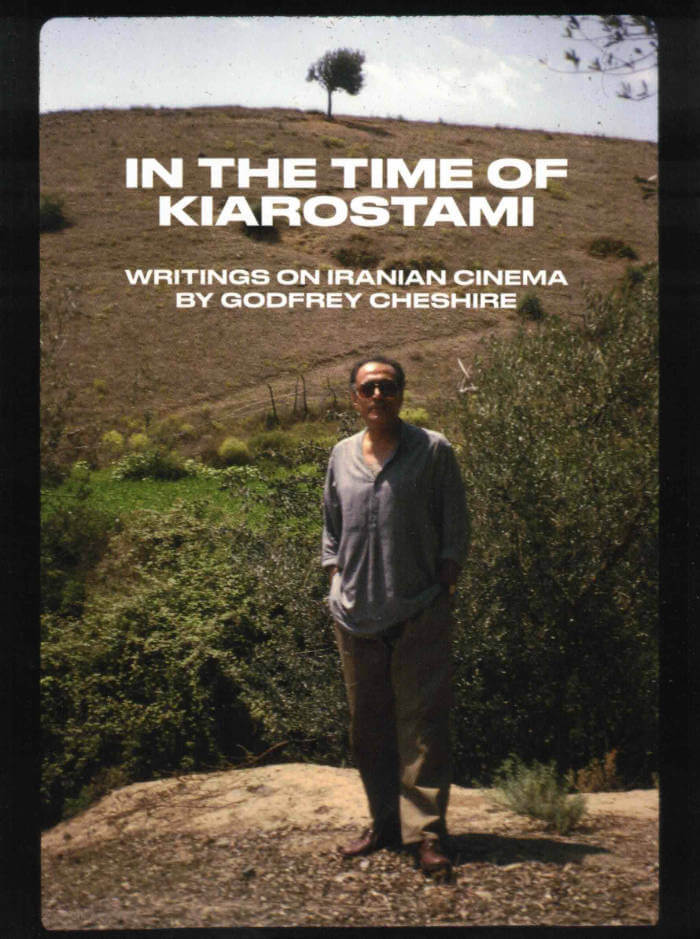
In the Time of Kiarostami: Writings on Iranian Cinema
“There is no better way to discover Iranian cinema than to immerse yourself in Godfrey Cheshire’s beautifully written 30 year personal cinematic journey. This is an important, informative and compelling book at this global political moment. It is vital to know these filmmakers of purpose through the perception of an outsider with whom we can identify and to lose ourselves to the wonder, humanity, and artistry of a culture and cinema that demands our attention now more than ever.” — Michael Barker, Sony Pictures Classics
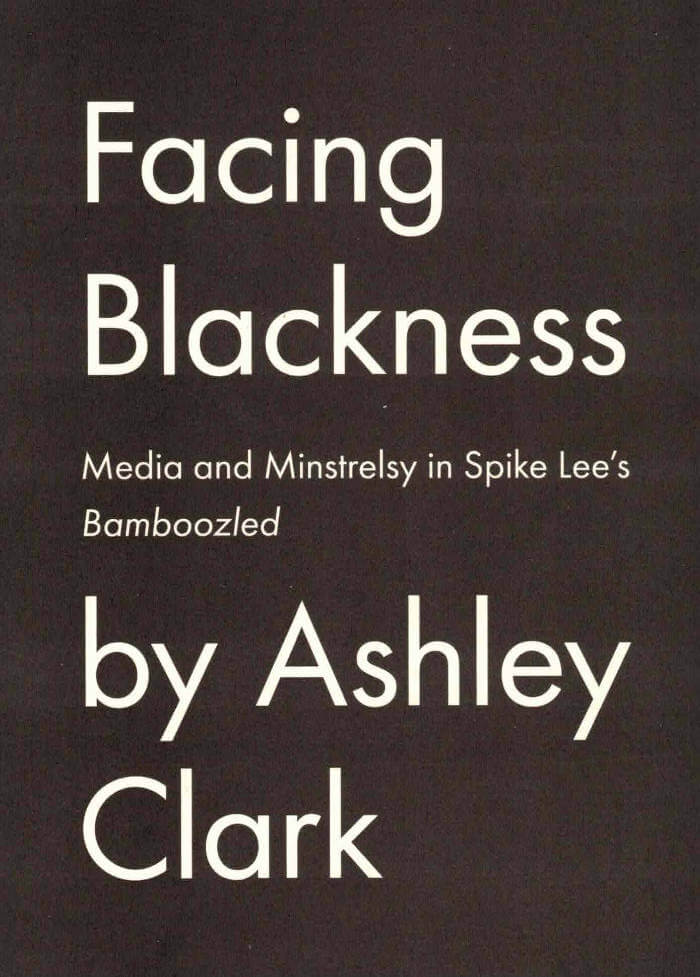
Facing Blackness
“In Facing Blackness, Ashley Clark traces the contours of Bamboozled, guiding readers through Lee’s intricate representation of race, politics, and popular culture. Clark moves beyond straightforward film criticism to situate the film within a complex history of blackness and American entertainment, making a powerful argument for its ongoing relevance and vitality. Thoughtful, rigorous, and witty, Facing Blackness is a thoroughly engaging analysis of this monumental film that is imperative reading for fans of Spike Lee and cinephiles more broadly.” — Racquel Gates, author of Double Negative: The Black Image and Popular Culture
Ashley Clark is a writer, critic and film programmer. He was born in London, lives in Jersey City, and works in Manhattan. Facing Blackness, initially published in 2015, is his first book. This revised second edition contains a new foreword.

Scrapbook – 40 ans de Light Cone
A visual anthology compiling the contributions of the filmmakers who are part of the Light Cone collection, a key institution for the distribution, promotion and preservation of experimental cinema in France and around the world, on the occasion of its 40th anniversary.
2022 marks an important moment for Light Cone: its 40th anniversary. Such an event should be celebrated in the best possible way. Light Cone has come together thanks to the filmmakers whose films entered the collection over the years. We've decided to invite them to participate in an editorial project, a book in which we would publish their contributions: letters, postcards, photographs, drawings, film stills, collages, etc., which they have sent us for the occasion of the anniversary. A collective scrapbook in which the materiality of the objects—paper, photos, colors, handwritten notes—evokes that of analog cinema, which we have always defended. A book of images is born, and through the creation of this micro-collection, so is a portable museum of about one hundred pieces, which are ready to be exhibited and which will remain in the care of Light Cone's archive.
With Michel Amarger, Martin Arnold, Caroline Avery, Peter-Conrad Beyer, Giuseppe Boccassini, Patrick Bokanowski, Louise Bourque, Robert Breer, Dietmar Brehm, Claudio Caldini, Stefano Canapa, Abigail Child, Pip Chodorov, Martha Colburn, Philippe Cote, Sandra Davis, Frédérique Devaux, Karel Doing, Anja Dornieden, Flatform, Cécile Fontaine, Olivier Fouchard, Su Friedrich, Siegfried Alexander Fruhauf, Peter Gidal, Milena Gierke, Christoph Girardet, Juan David, Gonzalez Monroy, Christophe Guérin, Nicky Hamlyn, Barbara Hammer, Teo Hernandez, Tony Hill, Mike Hoolboom, Jakobois, Larry Jordan, Patrice Kirchhofer, Maria Kourkouta, Alexandre Larose, Christian Lebrat, Emmanuel Lefrant, Maurice Lemaître, Jeanne Liotta, Rose Lowder, Johann Lurf, Pablo Marín, Mara Mattuschka, Bruce Mcclure, Miles Mckane, Luc Meichler, Barbara Meter, Peter Miller, Matthias Müller, Michel Nedjar, Dominique Noguez, Vivian Ostrovsky, Simon Payne, Emmanuel Piton, Charlotte Pryce, Gisèle Rapp-Meichler, Abraham Ravett, Emily Richardson, D.N. Rodowick, Gaëlle Rouard, Martine Rousset, Pierre Rovere, Ben Russell, Daïchi Saïto, Maki Satake, Sylvia Schedelbauer, Jeff Scher, Stanley Schtinter, Guy Sherwin, José Antonio Sistiaga, John Smith, Vicky Smith, Michael Snow, Malena Szlam, Mika Taanila, Marcelle Thirache, Trinh T. Minh-ha, David Wharry, Telemach Wiesinger, Antoinette Zwirchmayr.

Réenchanter le monde
Silvia Federici présente une histoire critique de la politique des communs dans une perspective féministe. De son vécu au Nigeria et de ses rencontres avec des militantes d’Amérique latine et du monde entier, Federici révèle les luttes quotidiennes des femmes contre la spoliation de leur terre, de leur logement et nourriture. De ses recherches historiques, elle compare les enclosures, qui ont permis la naissance du capitalisme par la destruction des communs et la prolétarisation des populations rurales, aux « nouvelles enclosures » au cœur de la phase actuelle d’accumulation capitaliste mondiale. Cet ouvrage soutient que les luttes autour de la reproduction sociale sont cruciales à la fois pour notre survie économique que pour la construction d’un monde libéré des hiérarchies et des divisions que le capital a implantées dans le corps du prolétariat international.
Federici considère que les communs ne doivent pas être compris comme des îlots de partage dans un océan de relations d’exploitation, mais plutôt comme des espaces autonomes à partir desquels défier l’organisation capitaliste de la vie et du travail.
Essai traduit de l’anglais par Noémie Grunenwald.
Silvia Federici (née en 1942 à Parme en Italie) est une universitaire américaine, enseignante et militante féministe révolutionnaire. Elle est professeure émérite et chercheuse à l’Université Hofstra à New York.

Manifestos
Edouard Glissant, Patrick Chamoiseau
The collected manifestos of Édouard Glissant and Patrick Chamoiseau: for a postcolonial response to planetary crisis.
Manifestos brings together for the first time in English the manifestos written by Édouard Glissant and Patrick Chamoiseau between 2000 and 2009. Composed in part in the aftermath of Barack Obama's election in 2008, the texts resonate with the current context of divided identities and criticisms of multiculturalism. The individual texts grapple with concrete historical and political moments in France, the Caribbean, and North America. Across the manifestos, as well as two collectively signed op-eds, the authors engage with socio-political aspects of climate catastrophe, resource extraction, toxicity, and neocolonialism.
Throughout the collection, Glissant and Chamoiseau engage with key themes articulated through their poetic vocabulary, including Relation, globalization, globality (mondialité), anti-universalism, métissage, the tout-monde (“whole-world”) and the tout-vivant (“all-living,” including the relationship of humans to each other and “nature”), créolité and the creolization of the world, and the liberation from community assignations in response to individualism and neoliberal societies.
Translated as the first volume in the Planetarities series with Goldsmiths Press, the themes of Manifestos resonate with the planetary as they work in response to contemporary forms of (economic) globalization, western capitalism, identity politics, and urban, digital and cosmic ecosystems, as well as the role of the poet-writer. A distinguishing feature of this publication is its interventional aspect, which prioritizes engaged scholarship and practice while demonstrating the relevance of the poetic in response to the urgencies of planetary crisis.
Translated by Betsy Wing and Matt Reeck
Afterword by Edwy Plenel

Snaturamenti
A workbook by Flatform on displacement, conceived and curated by Giuliana Prucca.
The book is published under four different covers and with four different layouts, randomly distributed.
Founded in 2006 and based in Berlin and Milan, Flatform is a video and media arts collective, at the border between experimental cinema and contemporary art, that creates time-based works, film events, and installations, most of which revolve around landscape and biopolitics. Distributed by Light Cone in Paris and by Video Data Bank in Chicago, works by Flatform have competed in major film festivals including Cannes, Rotterdam, Venice, Toronto, and have been shown worldwide in art venues such as Centre Pompidou, Haus der Kulturen der Welt, Hirshhorn Museum, MAXXI Museum, Eye Filmmuseum, Wexner Center for the Arts and Garage Center for the Arts.
Co-published by Light Cone and Avarie.

On Trials – A manual for the theatre of law
An exploration of the performativity of the law within Egypt's spectral legal reality.
The publication dissects material collected for Jasmina Metwaly and Philip Rizk's film On Trials, a work-in-progress that uses modes of documentary and fiction making. In it, they reflect on sites where legal proceedings take place. And listen to all manner of actors from within the realm of the law including, lawyers, a TV camera operator who frequents courtrooms, a former inmate, on whose body the legal specter has left unutterable marks, and tailors who specialize in uniforms.
Born to an Egyptian father and a Polish mother, Jasmina Metwaly is a Cairo-based artist and filmmaker, and member of the Mosireen collective. She likes to work with people and their histories, texts, archives, images, scripts and drawings. She is interested in how stories create stories, and how they leave the space of one reality and enter another, intertwining the boundaries of both. Rooted in performance and theatre, her works focus on process-based practices that have a social function that generates tension between participants and audiences.
Filmmaker, writer and freelance journalist Philip Rizk was born in Germany, raised in Egypt and is based in Cairo. His practice has moved beyond the documentary mode that directly engages with realities of historical moments, allowing the documented image to be infiltrated by imaginary worlds. Rizk is part of the video collective Mosireen.
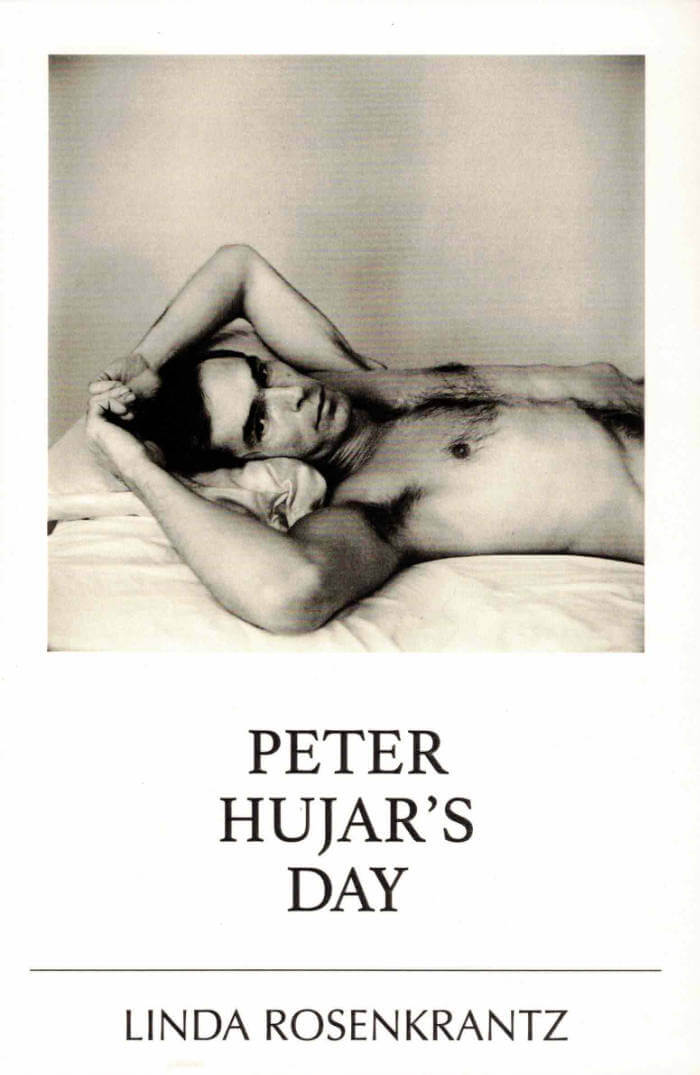
Peter Hujar's Day
On December 18, 1974, the author Linda Rosenkrantz asked her friend Peter Hujar to write down everything he did on that day. Hujar met Rosenkrantz at her apartment on 94th Street the following day, where she asked him about it in detail and tape-recorded their conversation. Peter Hujar's Day is a full transcript of that exchange, published here for the first time since it was recorded 47 years ago. The book features an introduction by Stephen Koch, director of the Peter Hujar Estate.
Linda Rosenkrantz (born 1934) is a Los Angeles-based, Bronx-born writer and the author of the "repellently raunchy" novel Talk (1969, republished as a New York Review Books Classic in 2015), Telegram! (2003), a history of telegraphic communication, and her memoir, My Life as a List: 207 Things About My (Bronx) Childhood (1999). She is the coauthor of Gone Hollywood: The Movie Colony in the Golden Age (1979).

Things You May Find Hidden in My Ear: Poems from Gaza
Winner of the 2022 Palestine Book Awards Creative Award
Finalist for the National Book Critics Circle Award in Poetry
These poems emerge directly from the experience of growing up and living one’s entire life in Gaza, making a life for one’s family and raising a family in constant lockdown, and often under direct attack.
In this poetry debut, conceived during the Israeli bombing campaign of May 2021, Mosab Abu Toha writes about his life under siege, first as a child, and then as a young father. A survivor of four brutal military attacks, he bears witness to a grinding cycle of destruction and assault, and yet, his poetry is inspired by a profoundly universal humanity.
In direct, vivid language, Abu Toha tells of being wounded by shrapnel at the age of 16 and, a few years later, watching his home and his university get hit by IDF warplanes in a bombing campaign that killed two of his closest friends. These poems are filled with rubble and the ever-present menace of surveillance drones policing a people unwelcome in their own land, and they are also suffused with the smell of tea, roses in bloom, and the view of the sea at sunset. Children are born, families continue traditions, students attend university, and libraries rise from the ruins as Palestinians go on about their lives, creating beauty and finding new ways to survive.

De quelques événements sans signification à reconstituer
This book presents Léa Morin's research into the first, long forgotten film by Moroccan filmmaker Mostafa Derkaoui, About Some Meaningless Events (1974), which led to its recent restoration and international distribution. Far from being confined to a cinematographic history, this "book-archive, book-inquiry, book-action" sketches out, from the multiple paths opened up by the film, a constellation of micro-histories on the cultural, artistic and political Morocco/Casablanca of the 1970s.
The book includes a DVD with the film.
Mostafa Derkaoui is a filmmaker and pioneer of modern Moroccan cinema, born in 1944 in Oujda, Morocco. He graduated from the Lódź Cinema School and lives in Casablanca.
Since returning to Morocco in 1972, he has continued the explorations he began in the student films he made in Poland, for a free and socially-engaged cinema that could contribute to both decolonial thought and the search for a Moroccan cinematic identity, and which would also encourage formal innovation and radicality.His avant-gardist vision was to come up against the official and repressive one of the 1970s Moroccan state (and of the remaining colonial institutions). His first film, De quelques événements sans signification [About Some Meaningless Events, 1974], made with a collective of Casablancan artists and intellectuals, was banned. It was later restored by the Filmoteca de Catalunya and L'Observatoire Art et Recherche in 2019.
Edited by Léa Morin.
Preface by Mostafa Derkaoui.
Texts by Ahmed Boughaba, Nadir Bouhmouch, Tarek Elhaik, Ali Essafi, Filmoteca de Catalunya (Rosa Cardona, Mariona Bruzzo et Esteve Riambau), Mohamed Jibril, Toni Maraini, Léa Morin, Mostafa Nissabouri, Marie Pierre-Bouthier, Noureddine Saïl, Rasha Salti et Monika Talarczyk.

Gossiping is Not (Just) Bitching (English edition)
Writing and design of a publication documenting the script Gossiping is Not (Just) Bitching. The design deliberately uses different typefaces to formally identify the multiple voices woven in the performance.
21 × 14.85 cm, 16 p, laser printed
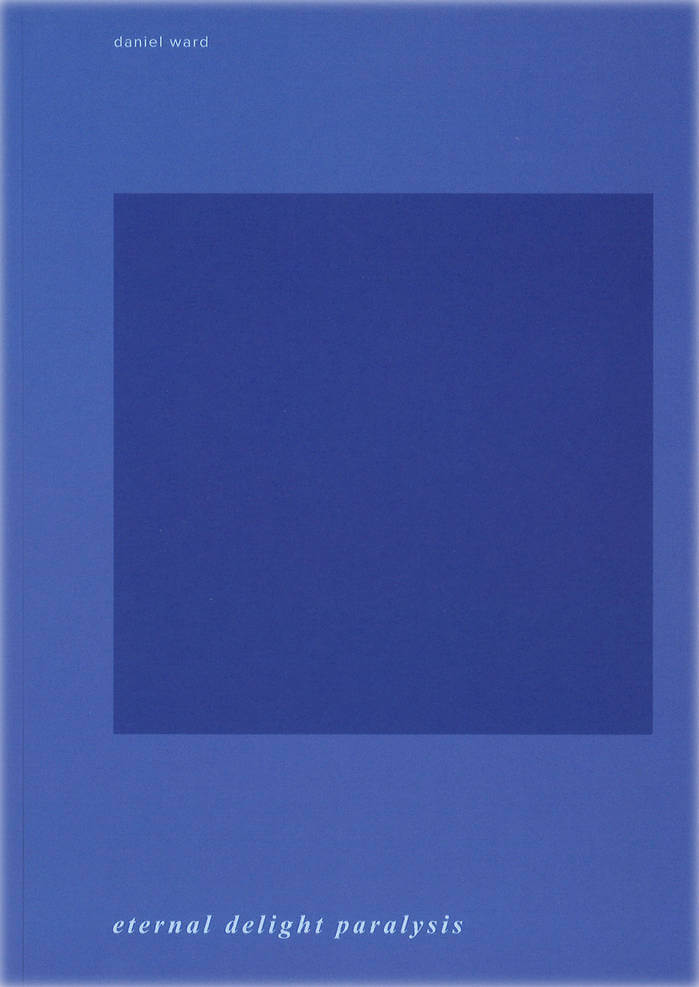
nmp.12 - Eternal Delight Paralysis
"…a book about days and pleasure. the dizzying inaction of life’s excess. it’s an interrogation on the balance of the circle time brings. they are mostly automatic poems. the book feels to be the beginning of a dialogue/catalogue of spirit, in as much as the poems enact a pantheism in their noticing of the body of/as earth. a long ode to witnessing the patterns we lay in avoidance of suffering. it examines a philosophy of patient indifference. and so much else i can’t say, because i’ve spent too long trying to say it. life as the grand poem."—daniel ward reflects on eternal delight paralysis.
nmp.12:
2022, english — paperback
148 pages, 145 x 204 mm
first edition, edition of 200, numbered
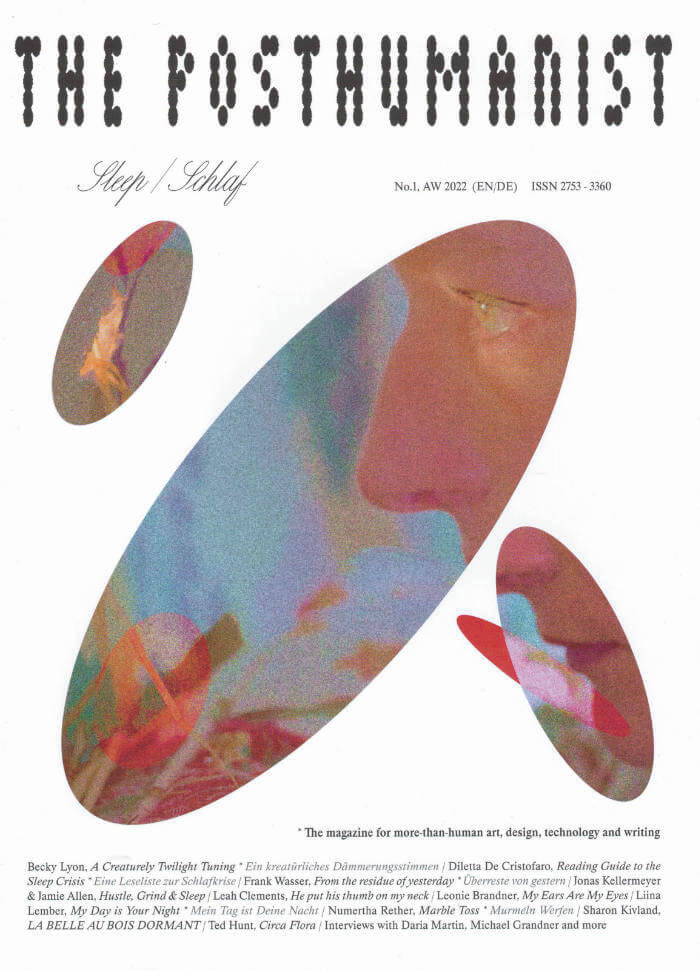
The Posthumanist #1 Sleep / Schlaf
The Posthumanist is a bi-annual English and German magazine featuring art, design, technology and writing. Each issue presents one theme from various more-than-human perspectives, inviting readers to imagine what living together on planet earth is and could be.
The idea for the publication emerged from a desire to discuss concepts and expressions of critical posthumanism and feminist new materialism in public contexts and to explore what inclusive futures could feel like.
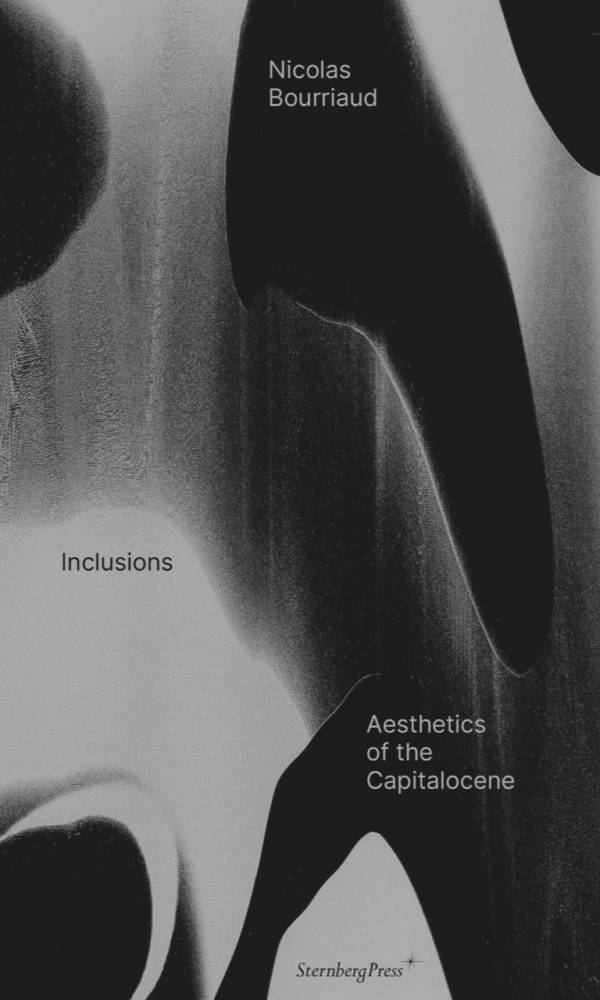
Inclusions: Aesthetics of the Capitalocene
The current ecological crisis brings about a new relational landscape: an unprecedented collapse of distances creates interspecies promiscuities and a crisis of the human scale. In Inclusions, Nicolas Bourriaud proposes that artists are the anthropologists of this new era.
"Today, the ecological catastrophe challenges us to rethink the space our societies have assigned to art. Creativity, critical thinking, exchange, transcendence, the relationship to the Other and to History are values intrinsic to artistic practice that will soon be of vital importance for the future of mankind. We need art to give a meaning to our lives, and the banks will not supply that. By attempting to unfold a few of the aesthetic figures floating in the global imaginary, this book intends to describe what is at stake in artistic activity in the age of the Capitalocene and to argue for it as a vital need."
Nicolas Bourriaud (born 1965) is a French curator, theoritian and writer.

Deceit
Appearing for the first time in English, Deceit is the debut novel by Yuri Felsen, a leading modernist writer of the interwar Russian diaspora. Known by his contemporaries as ‘the Russian Proust’, Felsen died in the gas chambers at Auschwitz, his life and legacy destroyed by the Nazis.
Written in the form of diary, Deceit is a psychological self-portrait of an unnamed narrator, a neurasthenic and aspiring author, whose often-thwarted pursuits of his love interest and muse provide the grounds for his beautifully wrought extemporizations on love, art and human nature. Modulating between the paroxysms of his tormented romance and his quest for an aesthetic mode befitting of the novel he intends to write, Deceit is a remarkable work of introspective depth and psychoanalytic inquiry.
Quite unlike any other writer in the Russian canon, Felsen evokes in rich, poetic, idiosyncratic prose not only the Zeitgeist of interwar Europe and his émigré milieu, but also its psychology and the existential crisis of the age. What Nabokov achieves with images and the physical world, Felsen does with the emotional and metaphysical.
Translated by Bryan Karetnyk
With a Foreword by Peter Pomerantsev

Strega
Powerfully inventive and atmospheric, Strega is a modern gothic story of nine young women on the cusp of inheriting society’s submission to violence, and the age-long myths that uphold it
With little boxes of liquorice, hairbands, and notebooks in her bag, Rafa arrives at the remote Alpine town of Strega to work at the grand Olympic Hotel. There, she and eight other girls receive the stiff uniforms of seasonal workers and are taught to iron, cook, and make the beds by austere matrons. In spare moments between tasks, the girls start to enjoy each other’s company as they pick herbs in the garden, read in the library, and take in the scenery. But when the hotel suddenly fills with people for a raucous party, one of the girls disappears. What follows are deeper revelations about the myths young women are told, what they are raised to expect from the world, the violence they are made to endure, and, ultimately, the question of whether a gentler, more beautiful life is possible.
A monument to long-dead maids and their shrouded knowledge, Johanne Lykke Holm’s luminescent and jagged prose, delivered in Saskia Vogel’s incisive translation, resonates like a spell that keeps exerting its powers long after reading.

Modernism/Murderism – The Modern Art Debate in Kumar
Jyoti Bhatt Pherozeshah, Rustomji Mehta
Modernism/Murderism brings together, for the first time in English, a forgotten debate on Modern Art that took place in the pages of India's Gujarati-language literary periodical Kumar between 1959 and 1964.
Published across various issues, the debate brings into conversation Pherozeshah Rustomji Mehta, a writer and art connoisseur from Karachi, and Jyoti Bhatt, a young artist who had just begun teaching at the Faculty of Fine Arts, MSU Baroda. While Mehta chose to defend what he believed were the timeless and traditional values of art, Bhatt proposed that Modern Art was no stranger to these values and in fact had much in common with them.
Alongside the articles by Mehta and Bhatt, the publication also brings together responses to the debate from various readers who interjected in the "Readers Write" column of the periodical, as well as notes from Kumar's editor, Bachubhai Ravat, who informally acted as a mediator. Offering a vantage point from which to view the entry of Modernism and its affiliated discourses into the art practices of the region, this volume proposes itself as a reader to these histories and revisits this crucial moment.
Jyoti Bhatt (born Jyotindra Manshankar Bhatt in 1934) is an Indian artist best known for his modernist work in painting and printmaking and also his photographic documentation of rural Indian culture.
Pherozeshah Rustomji Mehta (1880-1971) was a writer and scholar from Karachi.
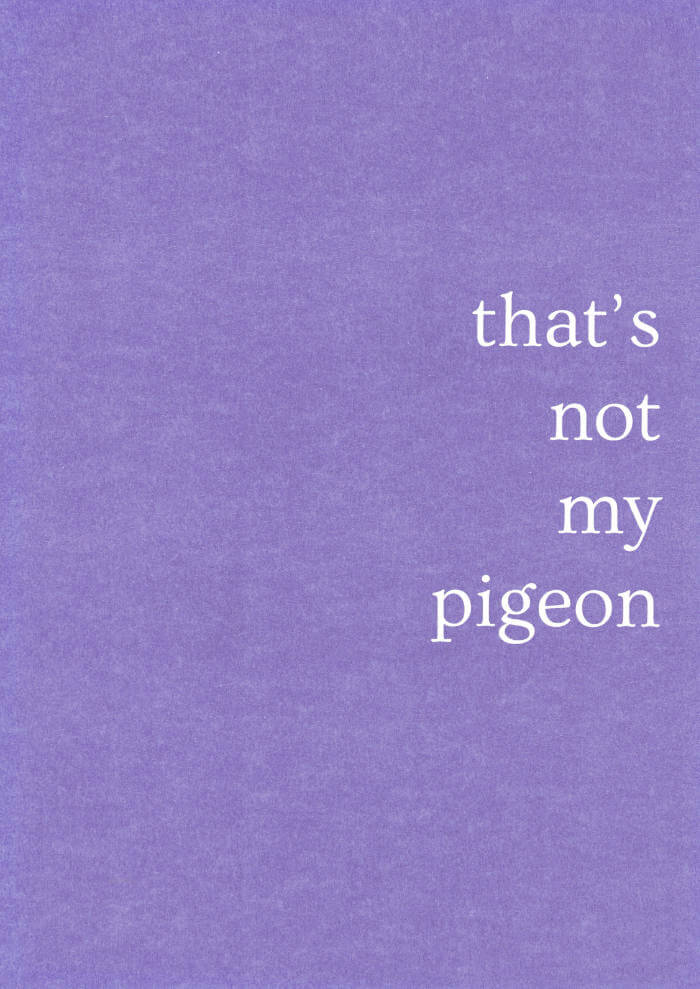
That's not my pigeon
The magazine edition.psd regroups research documents, autobiographical or poetic texts in order to create new narratives around plant and animal life forms. edition.psd de-categorises knowledge: botany, ethnography, history, history of art, philosophy and literature regularly intertwine throughout its pages. edition.psd attempts to develop the ethics of perception of particular situations, of moments, of what is going on.
The fourth issue focuses on pigeons and the imagnaries surrounding them, it is a collaboration with the artist and researcher Anastasia Simonin.

Toward a Transindividual Self (2nd edition)
A book that examines the process of performing the self, distinctive for the formation of the self in Western neoliberal societies in the 21st century. It approaches the self from a transdisciplinary angle where political and cultural anthropology, performance studies and dramaturgy intersect.
Starting from their concern with the crisis of the social, which coincides with the rise of individualism, Vujanović and Cvejić critically untangle individualist modes of performing the self, such as possessive, aesthetic, and autopoietic individualisms. However, their critique does not make for an argument for collectivism as a socially more viable alternative to individualism. Instead, it confronts them with the more fundamental problem of ontogenesis: how is that which distinguishes me as an individual formed in the first place? This question marks a turning point in the study, where it steps back into the process of individuation, prior to, and in excess of, the individual.
The process of individuation, however, encompasses biological, social, and technological conditions of becoming whose real potential is transindividual, or more specifically, social transformation. A ‘theater of individuation’ (Gilbert Simondon) captures the dramaturgical stroke by which the authors investigate social relations (like solidarity and de-alienation) in which the self actualizes its transindividual dimension. This epistemic intervention into ontogenesis allows them to expand the horizon of transindividuation in an array of tangible social, aesthetic and political acts and practices. As with every horizon, the transindividual may not be closely at hand; however, it is certainly within reach, and the book encourages the reader to approach it.
"Towards a Transindividual Self is an ambitious and capacious effort to theorize a new way to approach collectivity for political purposes through the lens of performance. Convinced that the current neoliberal conjuncture has only heightened a form of capitalist individualism that blocks notions of the social, the authors aim to show that a "transindividual formation of the self can bring about different courses of action and a more socially driven imagination." Transindividuation, they assure us, shows how "we form ourselves on the basis of interdependence, sharing, commonality, as well as indispensability of the individual as the agent of creativity/ knowledge, freedom, and change, who 'possibilizes' their own conditions of formation."
— Professor Janelle Reinelt (University of Warwick), co-editor of Critical Theory and Performance (University of Michigan, 2006)
"Perhaps the most striking thing about this book is the manner in which it is able to engage with multiple discourses from political theory to aesthetics. In this way it both follows the ambitious scope of Simondon’s work on individuation, and expands into areas that Simondon did not cover, most notably politics and cultural politics, which is the book’s central concern. Rather than ask the question is the individual imagined or real, an effect of social relations or their distortion, the focus on the transindividual makes it possible to grasp individuation as a process: “Instead of pondering how the passage from one to many occurs, individuation permits us to immediately trace a bidimensional process in which both individual persons and the collectivities they form are altered. Another meaning of the crisis of the social has brought about a perfect slogan of such a process of transindividuation: ‘No one will be left alone in the crisis.” (…) Towards a Transindividual Self does a brilliant job of not only arguing for the importance and relevance for the transindividual as a concept for politics, performance, and the politics of performance, but of demonstrating a bold standard for political and aesthetic inquiry."
— Professor Jason Read (University of Maine), author of The Politics of Transindividuality (Brill, 2015)
Co-published by Oslo National Academy of the Arts, Sarma and Multimedijalni institut.

17 Movements
17 Mouvements collects traces of a project that Decoratelier - the workspace and arts platform of Jozef Wouters - did in the fall of 2022 around the ‘5 blocs’ area in Brussels (Rempart Des Moines/Papenvest).
When Nuit Blanche invited them to build a gym, Camille Thiry and other Decoratelier associates did not want to design another generic muscle cage. Together with the neighbourhoods inhabitants, they built 17 distinct movement spaces, each tailor-made to an individual’s size, needs, dreams and aches. The gym equipment has meanwhile been removed from public space, but this eponymous book (ed. by Jozef Wouters) combines notes and reflections (language: French) by Camille with beautiful photography by Enzo Smits, documenting the ingenious and unique negotiations that were a part of this collaboration.

Diego Garcia (Semiotext(e) / Native Agents)
Natasha Soobramanien, Luke Williams
Edinburgh, 2014. Two writer friends, Damaris and Oliver Pablo, escape London, the city that killed his brother. They spend their days trying to get to the library, bickering over their tanking bitcoin, failing to write or resist the sadness. Then they meet Diego, a poet. He tells them he is named for his mother’s island in the Chagos Archipelago, which she and her community were forced to leave by British soldiers in 1973. Damaris and Oliver Pablo become obsessed with this notorious episode and the continuing resistance of the Chagossian people, and want to write in solidarity. But how to share a story that is not theirs to tell? And how to account for a loss not theirs to grieve? A tragicomedy interrogating the powers of literature alongside the crimes of the British government, Diego Garcia is a collaborative fiction that opens up possibilities for the novel and seeks other ways of living together.
Natasha Soobramanien and Luke Williams are the authors of Genie and Paul and The Echo Chamber, respectively. They used to live in Edinburgh but now live in Brussels, across the park from one another, where they meet up every day for a walk.

Paradis catalogue
Contributions by: Nicole-Antonia Spagnola, Georgia Sagri, John Kelsey, Matthew Pang, Cathy Wilkes, Sarah Rapson, Nick Irvin, Gene Beery, Anne Dressen, Anne Pontégnie, Jacqueline Mesmaeker, Sara Deraedt, Anne Rorimer, Kari Rittenbach, Olga Balema, Maria Nordman, Louise Lawler, Julie Ault, Martin Beck, Adrian Morris, Matt Browning, John Miller, Envers Hadzijaj, Enzo Shalom, Bedros Yeretzian, Morag Keil, Helmut Draxler, Gianna Surangkanjanajai, Steve Cannon, Rae Armentrout, Zoe Hitzig, Pierre Guyotat, Lola Sinreich, Fanny Howe, Hélène Fauquet, Marie Angeletti, Richard Hawkins, Andy Robert, Alexander García Düttmann, Daniel Horn, El Hadji Sy, Henrik Olesen, Aurélien Potier, Richard John Jones, Stéphane Barbier Bouvet, Nora Schultz, Peter Fend, Megan Francis Sullivan, Jill Johnston, Sturtevant, Tonio Kröner, Bernard Bazile, Pierre Bal-Blanc, Jérome Pantalacci, Gérard Traquandi, Gladys Clover, Maria Wutz, Jimmie Durham, Richard Sides, Camilla Wills, Michael Callies, Steven Warwick, Matthew Langan-Peck, Dan Graham, Nina Könnemann, Hans Christian Dany, Valérie Knoll, Win McCarthy, Eleanor Ivory Weber, Anna Rubin, Heji Shin, Michèle Graf & Selina Grüter, Inka Meißner, Simone Forti, Morgan O’Hara, Angharad Williams, Ye Xe, Lily Van Der Stokker, Yuki Kimura, Peter Wächtler, Eva Steinmetz, Michael Van den Abeele, Marc Kokopeli, Bradley Kronz, Robert Grosvenor, Samuel Jeffery, Charlotte Houette, Adam Martin, Wade Guyton, Chloe Truong-Jones.
Edited by Marie Angeletti with Gianmaria Andreetta and Camilla Wills.
Printed in December 2022.
416 pages, Edition of 840.
© 2022 Claude Balls Int. / the author(s).
